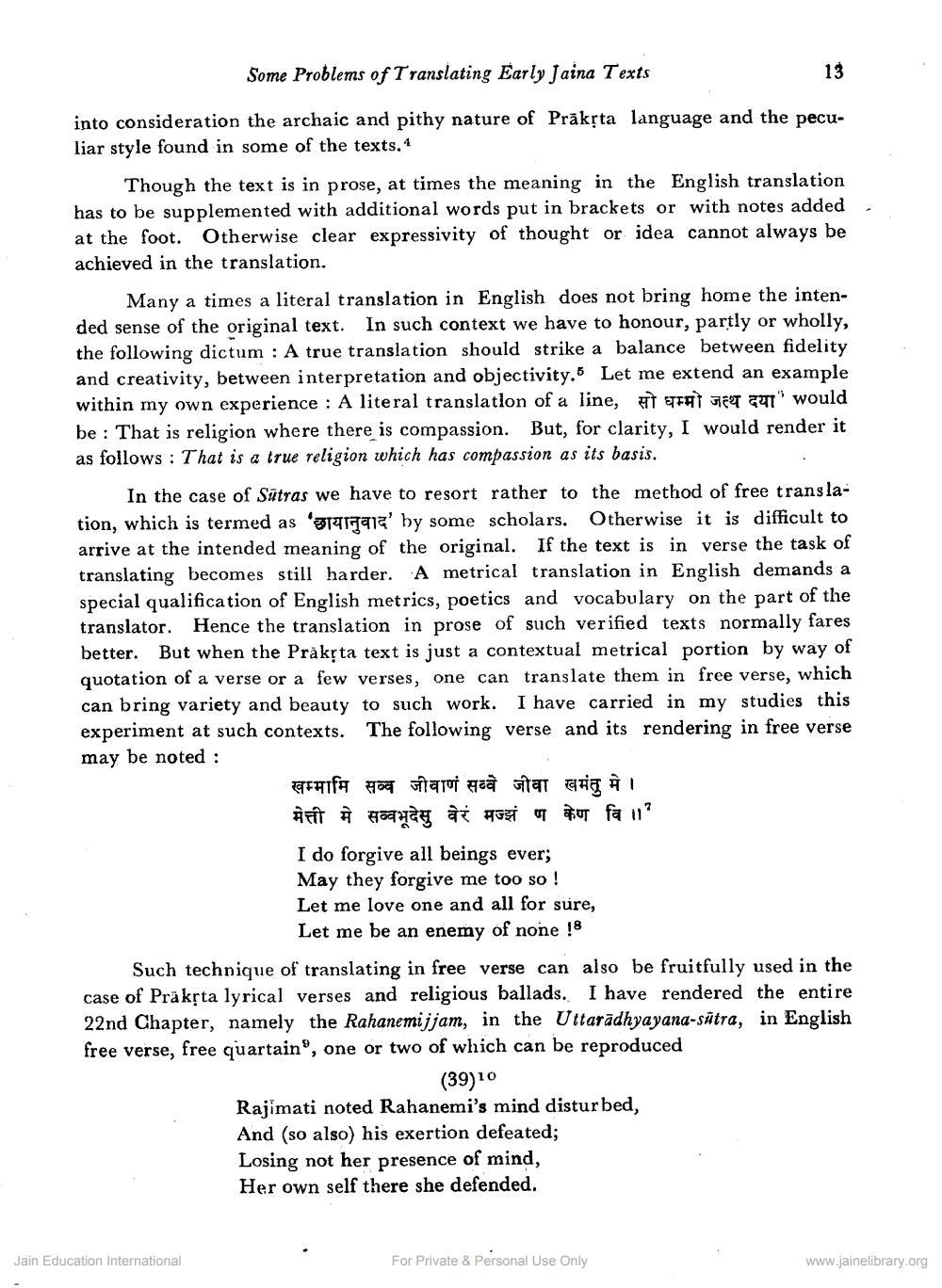Book Title: Some Problems of Translating Early Jaina Texts Author(s): B K Khadabadi Publisher: Z_Aspect_of_Jainology_Part_2_Pundit_Bechardas_Doshi_012016.pdf View full book textPage 2
________________ Some Problems of Translating Early Jaina Texts 13 into consideration the archaic and pithy nature of Prāksta language and the peculiar style found in some of the texts. * Though the text is in prose, at times the meaning in the English translation has to be supplemented with additional words put in brackets or with notes added. at the foot. Otherwise clear expressivity of thought or idea cannot always be achieved in the translation. Many a times a literal translation in English does not bring home the intended sense of the original text. In such context we have to honour, partly or wholly, the following dictum : A true translation should strike a balance between fidelity and creativity, between interpretation and objectivity.5 Let me extend an example within my own experience : A literal translation of a line, EFAT ET QUI would be : That is religion where there is compassion. But, for clarity, I would render it as follows: That is a true religion which has compassion as its basis. In the case of Sūtras we have to resort rather to the method of free translation, which is termed as 'orariais' hy some scholars. Otherwise it is difficult to arrive at the intended meaning of the original. If the text is in verse the task of translating becomes still harder. A metrical translation in English demands a special qualification of English metrics, poetics and vocabulary on the part of the translator. Hence the translation in prose of such verified texts normally fares better. But when the Prakrta text is just a contextual metrical portion by way of quotation of a verse or a few verses, one can translate them in free verse, which can bring variety and beauty to such work. I have carried in my studies this experiment at such contexts. The following verse and its rendering in free verse may be noted : खम्मामि सव्व जीवाणं सब्वे जीवा खमंत मे । मेत्ती मे सव्वभूदेसु वेरं मज्झं ण केण वि ॥" I do forgive all beings ever; May they forgive me too so ! Let me love one and all for sure, Let me be an enemy of none !8 Such technique of translating in free verse can also be fruitfully used in the case of Praksta lyrical verses and religious ballads. I have rendered the entire 22nd Chapter, namely the Rahanemijjam, in the Uttarādhyayana-sútra, in English free verse, free quartaino, one or two of which can be reproduced (39)10 Rajimati noted Rahanemi's mind disturbed, And (so also) his exertion defeated; Losing not her presence of mind, Her own self there she defended. Jain Education International For Private & Personal Use Only www.jainelibrary.orgPage Navigation
1 2 3 4
